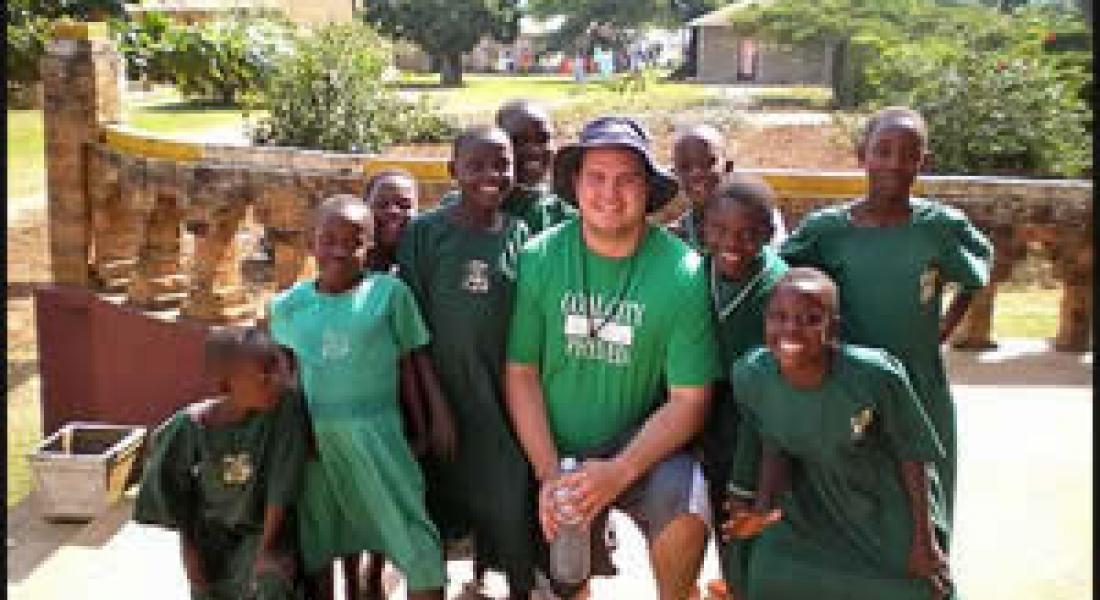
In addition to his role as a short snapper on the Irish football team, Bill Flavin, a senior majoring in biochemistry, has a passion for healthcare research. This past summer, he conducted research in Uganda. His three-week research project was funded and organized in partnership with the Ford Family Program in Human Development Studies and Solidarity as part of the Kellogg Institute for International Studies. After spending the past three summers researching at the University of Chicago Medical Center under the guidance of Eugene B. Chang in the Digestive Diseases Research Core Center, Flavin focused his research in Uganda on enteric and diarrheal diseases caused by impure water, as a consequence of extreme systematic poverty and grassroots economic growth and development.
Flavin was eager to see firsthand how his research would affect the lives of individuals in Uganda, “When the opportunity came about for me to partner with the Ford Family Program and develop a relationship between the University of Notre Dame College of Science and Uganda Martyrs University, I was extremely excited to research the healthcare system in East Africa and the impact the pharmaceuticals had on the lives of the people I was studying affected with these illnesses.”
He especially understood the importance of getting varying perspectives on healthcare and methods for treatment, as well as prevention, of these diseases. “In Uganda, my research consisted of conversations with healthcare administrators, doctors, caretakers, and patients at Nkozi hospital and the health center in Nnindye Parish. It was important for me to include members of every level of the healthcare system, from the national hospitals to the local clinics, and to get their opinion on the healthcare system in general, strategies for further development, and methods for treating and preventing water-borne diseases.”
In addition to researching the healthcare system, Flavin also spent time working with local businesses and schools to address the issues. “On a few occasions, I was also able to accompany the four other Notre Dame students at Uganda Martyrs University working through the Kellogg Institute and the Center for Social Concerns into the local communities where they were working with local businesses and schools to help them address issues to their further development. Combined with my research, the time I spent helping the other students with their projects helped me to see the ways in which government, education, water purification, and local infrastructure all have an effect on the improvement of healthcare quality and access.”
Overall, Flavin says that he found the research experience very meaningful and now understands global health more fully. “My research experience in Uganda has been wonderful, and definitely eye-opening. Experiencing the challenges there, in health and otherwise, really makes me appreciate all that I’ve been blessed with, and meeting the incredibly kind and welcoming people there has taught me that the area of global health includes more than just science and medicine; it’s about interacting with other people and helping them to address needs in their way.”
Flavin is currently applying to M.D./Ph.D programs to pursue a career that combines a love for research with patient care.
First posted at nd.edu.





